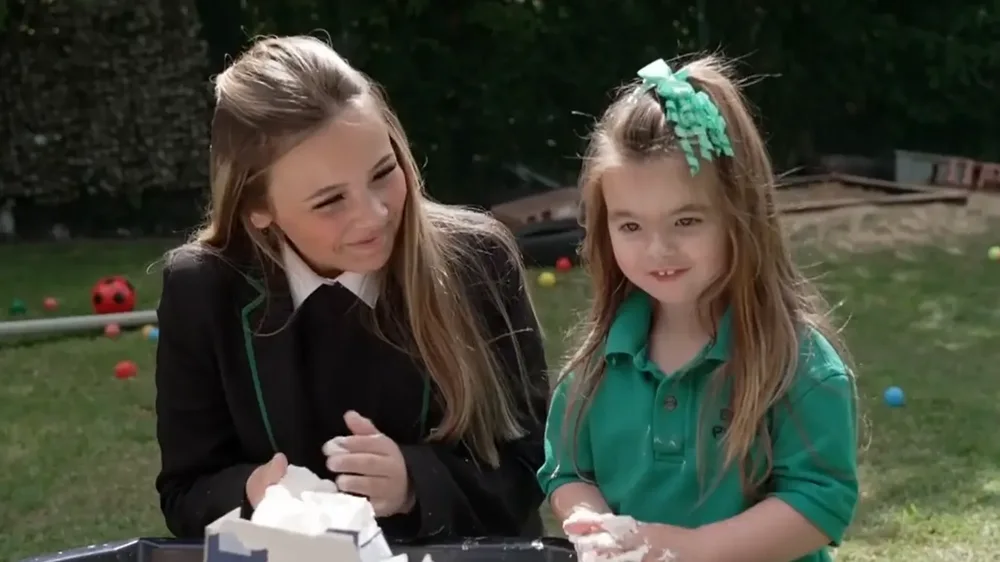
Siena, 13, never thought she would be receiving lessons in communication and trust from a three-year-old. She is part of a special program that pairs teenagers with preschoolers, with the goal of increasing their engagement and attendance at school.
Siena admits that she suffered from anxiety and often missed school, but the program has changed her life: “It has helped me a lot, I communicate better and I feel more confident. It's funny, but it's a little child who is teaching me these things.” She now goes to school more than twice as often as she used to.
Miller, 12, has also benefited from the initiative. Full of energy and hesitant in class, he says that after two weeks of hesitation he agreed to be a part of it. He has already formed a strong bond with three-year-old Andrew: “When he sees me, he comes running and hugs me. It makes me feel calmer and more focused on my lessons.”
The project, developed by the organization Power2, which is implemented in London and Manchester, lasts 16 weeks. Teenagers visit a kindergarten once a week and look after a specific child, creating responsibility and emotional connection that translates into increased self-confidence and improved school attendance.
According to Power2, 78% of young people who participate in the program improve their attitude towards learning, while 83% increase their self-esteem. In addition, children also benefit – many of them have speech delays or social difficulties, and regular contact with adolescents helps them develop faster.
Education experts and psychologists say this type of mentoring offers something that is often missing in school: a sense of responsibility and the opportunity to be a positive role model.
???? The statistics are alarming: during the 2024/25 school year, 17.79% of students in Britain missed more than 10% of classes, almost double the rate before the pandemic. Just 10 days of absence can halve the chances of getting a passing grade in language and maths.
For parents, experts offer some practical advice to combat school avoidance: work closely with the school, give children more space and agency, spend quality time without distractions, and don't blame yourself or your children.
???? The Power2 program is just a small step towards a big problem, but the examples of Sienna and Miller show that even the simplest connections – like those between a teenager and a three-year-old – can bring about big changes.






















